The demand to live in the Colorado mountains has never been greater. More and more people are leaving their urban life behind and relocating to our rural mountain towns. Grand County offers the much sought after mountain lifestyle but before you make the leap and find your dream property, there are some considerations to keep in mind......
Providing these details and more to your agent will allow them to help you find the right property within your guidelines.
If you are involved in buying or selling real estate. Or, just for your general knowledge. There are numerous terms, commonly used jargon, in the real estate industry that make up a peculiar language all its own, which would be beneficial for you to learn.
This jargon isn’t difficult to master, but there is real danger of hearing and using words you don’t fully understand.
Following are some basic terms that are often misunderstood:
MLS(Multiple Listing Service) —An organization that collects, compiles, and distributes information about properties listed for sale by its members, who are real estate brokers. Membership isn’t open to the general public, although selected MLS data may be sold to real estate listing websites. MLS’s can be local or regional. There is no “one” MLS covering the entire nation.
PITI—Principle, interest, taxes and insurance (PITI) are the four components of a monthly mortgage payment. Principal refers to the part of the monthly payment that reduces the remaining balance of the mortgage. Interest is the fee charged for borrowing the money. Taxes and insurance refer to the amounts that are paid into an escrow account each month for property taxes and mortgage and hazard insurance.
CMA—Comparative Market Analysis. A CMA is a report that shows prices of properties that are comparable to a subject property and that were recently sold, are currently on the market or were on the market, but not sold within the listing period.
Closing Costs —The entire package of miscellaneous expenses paid by the buyer and seller when the transaction closes. These costs include the brokerage commission, mortgage-related fees, escrow or attorney’s charges, recording fees, title insurance, etc. Closing costs generally are paid through escrow.
Contingency —provision of an agreement that keeps the agreement from being fully legally binding until a certain condition is met. One common example is a buyer’s contractual right to obtain a professional home inspection before purchasing the home.
Title Insurance—An insurance policy that protects a lender’s or owner’s interest in real property from assorted types of unexpected or fraudulent claims of ownership. It’s customary for the buyer to pay for the lender’s title insurance policy.
Many of us often refer to a person who has “bought or sold” real estate. Even in newspapers we see advertised real estate for sale, yet it is only the “title” to real estate which can be bought or sold. Title is sometimes defined as the means whereby an owner is enabled to maintain or assert his possession in enjoyment of property. Another definition is that title is the evidence of right which a person has to the possession of property. As applied to the investigation of titles, the word “title” has acquired the sense of history. Therefore, searching the title, investigating the title, and giving an opinion of title all refer to the compilation and the interpretation of the history of the title, a service performed by the title company. The conclusions of his study into the history of real property are summarized on a policy of title insurance.
It should be remembered that title is synonymous with the words “right”, “interests,” “estate.” Such words are used to denote the degree, quantity, nature and extent to which a person may have an interest in real estate
An insurance policy that is written on title to real estate differs from every other form of insurance in its degree to indemnify an insured in the event of a loss by reason of a defect or flaw of title PRIOR to the date of policy. All other forms of insurance agree to indemnify the insured in the EVENT OF LOSS due to a FUTURE event and after the date of the policy
Basically, title insurance is the company’s opinion concerning the ownership and marketability of title to a particular parcel of real property. This can only be ascertained after a thorough and complete search of all the records affecting title to the parcel insured. A title company is a service organization and performs a service for those interested in buying, selling, or loaning money on real estate. When you purchase a title insurance policy, you are buying the services of experts. The company is willing to back the opinion of these experts with the additional feature of insurance.
Title insurance, in effect, insures marketable title which is, in essence, title that a prudent man, well advised as to the fact in law, would be willing to accept.
Title insurance policies, however, do not insure against several major areas which are either too difficult or too expensive to cover, including defects in title known to the insured, easements and liens not shown by the public records, interest of parties in possession, or matters requiring an accurate survey.
When dealing with real property, title of the seller cannot be assumed. We must ascertain and then be assured that what we bargain for is in fact owned by the seller. A purchaser of real property is not satisfied with assurance that he will not be dispossessed of his property or that no adverse claim may appear to harass his quiet enjoyment of the property. Every person, when purchasing real property, wants to know that he will be able to sell, lease, or mortgage the property freely. Because there are as many interests in land as there are leaves on a tree, a purchaser wants to be assured that his title to the land is marketable.
Title insurance is often required to protect the lender against loss if a flaw in title is not found by the title search made when the house is purchased. You may also get an owner’s policy to protect yourself. Also, attorneys provide title insurance as part of their services in examining title and providing a title opinion.
It is important to remember that a title insurance policy issued only to the lender does not protect you. Similarly, the policy issued to a prior owner, such as the person from whom you are purchasing the property, does not protect you. To protect yourself from loss because of a mistake made by the title searcher, or because of a legal defect which does not appear on the public records, you will need an owner’s policy. Such a mistake rarely occurs, but, when it does it can be financially devastating to the uninsured. When you buy an owner’s policy it is usually much less expensive if purchased simultaneously with a lender’s policy. In addition, if you are buying a home which has changed hands within the last several years, inquire at the title company that issued the previous title insurance about a “reissue rate” which could be a lower charge than the cost of a new policy.
Listed below are many of the items to attend to prior to the closing. It is important to review these items and discuss them with your agent:
FINANCING —Arrange for financing. Obtain a final approval and review lender requirements.
TITLE INSURANCE —Make arrangements for obtaining title insurance. Review with attorney/accountant how to hold title to property regarding estate planning/tax implications.
MOVING ARRANGEMENTS —Obtain estimates for moving companies and coordinate estimated moving date.
PROPERTY INSURANCE —Make arrangements for insurance coverage regarding real property, personal property, and personal liability.
CONTINGENCIES —Follow-up to ensure that any contingencies (i.e., property repairs, termite inspection, and other requirements) have been completed.
UTILITIES/ADDRESS CHANGE —Arrange to have utilities transferred and change address with post office, family, friends, relatives, and employers.
FINAL WALK -THROUGH—Arrange for final walk-through of property to inspect for utility functions, repairs completed, personal property and garbage removal, etc. Obtain all operating instructions and warranties from Seller. Obtain Homeowners Association rules, regulations, and covenants if applicable.
AT THE CLOSING —Confirm the method of payment for paying the balance of the down payment and closing costs. Also confirm identification necessary at time of document signing. Obtain keys, garage openers, and alarm codes at time of possession.
Even if your move is within the same general area, there are several actions that can expedite the procedure.

Each Office Independently Owned And Operated. The information provided herein is deemed accurate, but subject to errors, omissions, price changes, prior sale or withdrawal. United Real Estate does not guarantee or is anyway responsible for the accuracy or completeness of information, and provides said information without warranties of any kind. Please verify all facts with the affiliate.
Copyright© United Real Estate
Privacy Statement-Terms Of Use

If you are using a screen reader, or having trouble reading this website, please call our Customer Support for help at 800-999-1020 .
Web Content Accessibility Disclosure Statement:
We strive to provide websites that are accessible to all possible persons regardless of ability or technology. We strive to meet the standards of the World Wide Web Consortium's Web Content Accessibility Guidelines 2.1 Level AA (WCAG 2.1 AA), the American Disabilities Act and the Federal Fair Housing Act. Our efforts are ongoing as technology advances. If you experience any problems or difficulties in accessing this website or its content, please email us at: unitedsupport@unitedrealestate.com. Please be sure to specify the issue and a link to the website page in your email. We will make all reasonable efforts to make that page accessible for you.
Leave a message for Erika